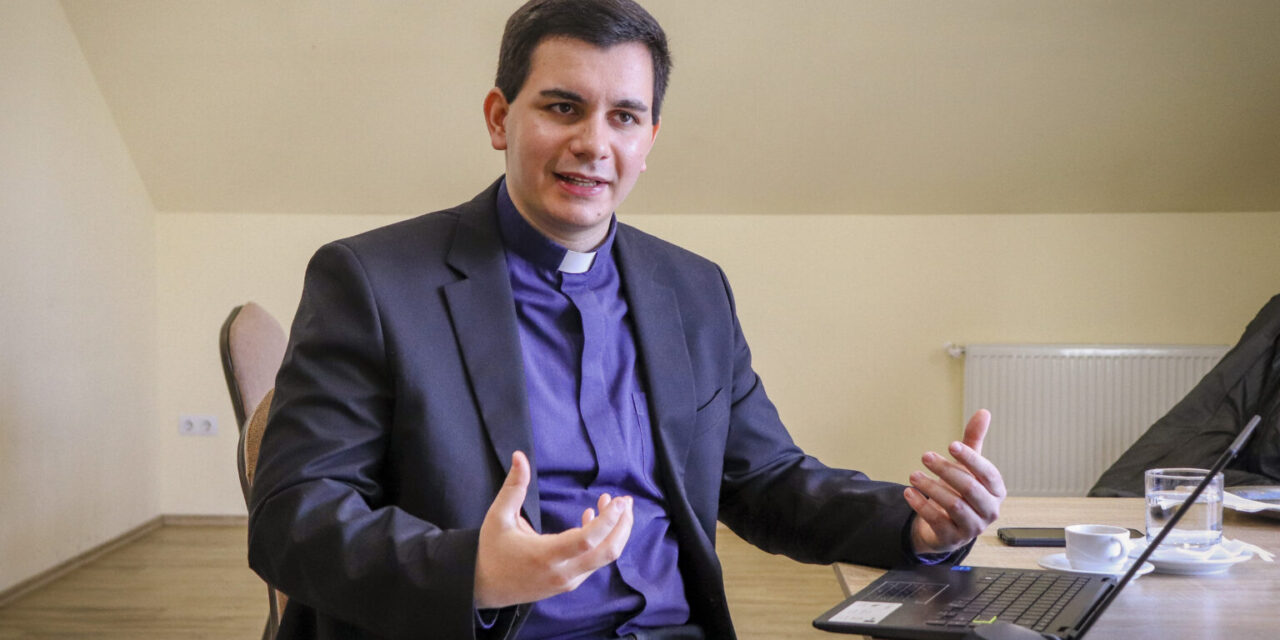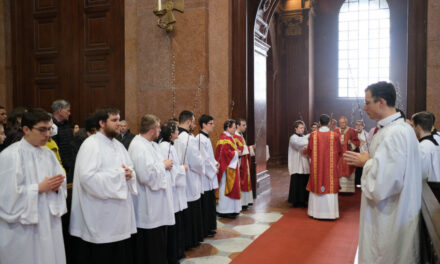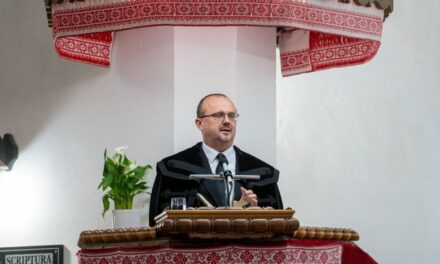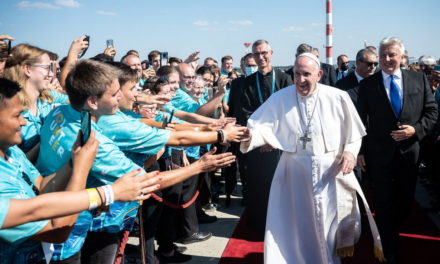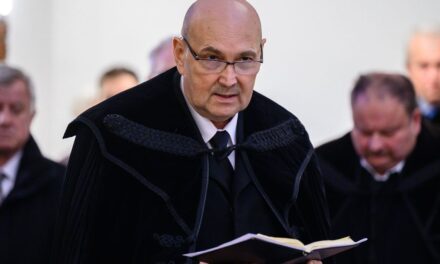Father János Rónaszéki, together with parish priest Zoltán Horváth, launched the Franciscus Foundation this month, the objective of which is to make the theological work and image of Pope Francis public within the Church, thus improving the domestic perception of the Holy Father. Interview.
According to Father Janó, in order to understand Pope Francis, it is crucial to know the theological background from which he came, including the renewal of the Latin American church over four or five decades. Synodality, schism, blessing gay couples and addressing young people - an exhaustive interview on current church issues.
Why is the person of Pope Francis and caring for his theological work important to you?
Pope Francis was the first one whose election I remember. I was a young teenager and his first speeches touched me. At one time, his morning mass sermons were published every day, and I began to read them. I felt that he represented a different kind of outlook, a spirituality that I had not encountered before. I felt what he said to be authentic and true, and I read more and more of him. I can say that Pope Francis gave me the most spiritual development during my seminary years. Later, I also wrote my thesis on his theological and spiritual background, which is a less explored topic in Hungary. It was a great pleasure for me to be able to meet the Holy Father in person during the International Eucharistic Congress. I served as a deacon at the papal mass, so I was next to Pope Francis the whole time. He also shook hands with the members of the assistance, and this short moment was a lifelong experience for me.
His whole presence radiated naturalness, it was felt that God was working through him.
When he visited our country in April last year, he urged us to be proactive and take bold risks. This is how I came up with the idea that it would be great to create a foundation with the aim of deepening his theology and church image. Together with my spiritual guide, Father Zoltán Horváth, parish priest from Terézváros, we founded the Franciscus Foundation, whose leaders, colleagues and volunteers are mainly Scouts, as well as adults and young people from Regnum. The primary purpose of the Foundation - which is committed to Christian-Catholic values - is to care for the intellectual, i.e. spiritual and theological, legacy of Pope Francis, and to support and implement missional - spiritual and social - activities related to and resulting from this. Our big plan is to open a foundation, non-profit Christian, mission café in the 5th district, in the business premises of the Ward Mária School, called Café Francesco, in September, which will serve as a meeting place for young Christians, as well as a place for faith and church-related discussions.
Our main motivation with the foundation is to improve the opinion of Pope Francis.
The image formed of him is a bit distorted in our country, we can say that he was the victim of "character assassination", as many see him - in a pejorative sense - as a liberal leader.
However, this is not true at all. Whoever reads or listens to his speeches, it becomes completely clear that he is a particularly conservative person. Pope Francis brings innovation and openness not by changing the content of the Church's teaching, but by his style and way of speaking, while preserving conservative values throughout. I see that this is the way of the Church in the 21st century. We need to change our communication, go out to the periphery, face social issues and be present among people, while preserving Catholic values. My goal is to make the image and style of Pope Francis well known within the Church. The Franciscus Foundation serves as a tool for this.
You mentioned that you examined the theological background of Pope Francis, and that you think it is important to be aware of this if we want to understand his work. Could you also introduce the readers?
Many people think that something strange might have happened in the Church in 2013, since XVI. Benedict resigned and out of nowhere came someone from Latin America who was suddenly on the throne of St. Peter. Pope Francis was unknown to European believers, many considered him frivolous. However, if we read a little more about who he really is, we realize that not only is he well-known, but he was a very important person even before his election in the Latin American church, which is the 20th-21st century. underwent a major transformation in the 19th century. The process lasting 40-50 years brought significant changes, the entire world church paid attention to Latin America, where the local church tried to stand on its own feet, to formulate its identity as an independent sub-church of the Catholic Church bearing Latin American characteristics. The renewal process took place under the leadership of the Council of Latin American Bishops (CELAM), whose president from 2005 to 2011 was Bergoglio, Archbishop of Buenos Aires, later Pope Francis.
The most important emphasis of Pope Francis' theology is folk theology, which is a specific Argentine version of the liberation theological trend. Latin America is a poor region, there is a lot of social injustice, and the difference between the different social strata is huge. Local theologians in the previous century realized that the Church had to somehow respond to these challenges. Liberation theology proclaims Christ's redemption to people in such a way that it is not only a spiritual matter, but that redemption affects social situations as well. It is intended to bring the liberating power of Christ's redemption to the poor who are marginalized by society. Unfortunately, later on, the negative tendencies of this theology spread, taking on the character of a class struggle.
The theology of the people is a specifically Argentinian version of liberation theology, which no longer aims only at the restoration of social order; He puts God's people in the center and looks for how the gospel can be proclaimed in the culture of a particular people. This is a topical question, since culture is constantly changing, and the Church must find new ways of evangelization. Folk theology is not speculative or abstract, but affects everyday life, and people's sense of faith plays an important role in it.
When Pope Francis addresses the people directly, when he talks about the poor church, he brings the product of the Latin American renewal to the world church,
and offers a way of seeing that has already been born in that region, but is still unknown to a part of the European world.
The entire article can be read on the 777 blog!
Featured image: János Rónaszéki (Flóra Katona)

